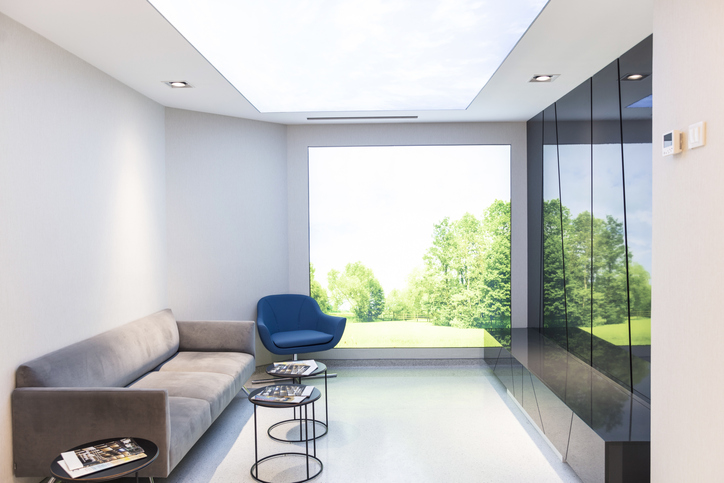The effects of stress on our lives are many and varied, but one effect in particular that is often overlooked is its effect on the skin. The stress that many of us experience can manifest itself as rough skin on the face and body. Here, we will explain how stress causes rough skin, along with the scientific background behind it. In addition, we will help you cope with this problem by introducing effective remedies that you can easily try in your daily life from an expert's point of view.

Graduated from the Faculty of Medicine, National Kumamoto University. After serving as the director of major beauty clinics in Japan, etc., he opened Aladdin Aesthetic Clinic in 2023. He is a professional in aesthetic medicine with a doctorate in anti-aging research and many years of experience. With the motto of "Toward the realization of cosmetic medicine without lies," he aims to be the "Only One" together with his patients.
What are the causes of stress-induced skin irritation?

The stress we experience in our daily lives can have serious effects on our skin as well as our minds. Understanding how stress causes rough skin and taking effective countermeasures are essential to maintaining beautiful skin. This section details how stress causes rough skin, its characteristics and symptoms.
Stress is defined by Dr. Cellier as "a nonspecific response to stimuli from the external environment. Fluctuations in hormone levels are key to how this response affects the skin. Excessive production of the stress hormone cortisol can cause an imbalance of oil in the skin, leading to inflammation. This results in symptoms such as redness, itching, and boils on the face and body.
Excessive secretion of cortisol due to stress leads to a decrease in the skin's immune function. This causes the skin to lose its defenses against external stimuli, making it more susceptible to a variety of skin disorders. Stress can also worsen blood flow, which adversely affects the skin's repair function.
Specific skin symptoms caused by stress include acne, eczema, and urticaria. These symptoms can appear not only on the face, but also on the neck and other parts of the body. These symptoms tend to be particularly aggravated during periods of high stress.
A breakdown of homeostasis, or imbalance in the body, also contributes to stress-induced skin problems. When stress persists, the body loses its ability to maintain this balance, and as a result, skin health suffers.
I am concerned about symptoms of stress-induced skin problems! What are some tips to solve skin problems?

Skin problems appear unnoticed in daily life. However, understanding their causes and how to deal with them can help you resolve skin problems more effectively. Here are some common symptoms of rough skin on the face, neck, and other parts of the body, as well as tips for daily living to restore skin health.
What are common symptoms of skin irritation?
| cause | counter-measure |
|---|---|
| Excessive secretion of sebum | Use of mild cleansers |
| clogged pores | Regular cleansing |
| Stress, hormonal fluctuations | Stress management, balanced diet |
| Sebum gland activity on face, neck, and back | Use of appropriate moisturizers |
| allergic reaction | Allergen identification and avoidance |
| External stimuli (cosmetics, detergents) | Selection of non-irritating products |
| Decreased skin barrier function | Enhanced skin care routine |
Acne is mainly caused by excessive sebum secretion and clogged pores, which are largely due to stress and hormonal fluctuations. In particular, increased stress increases cortisol (stress hormone) in the body, which stimulates sebaceous glands and promotes sebum secretion.
At the same time, the pores around the sebaceous glands become clogged, which accelerates the formation of acne. Acne appears not only on the face, but also on the neck and back because there are active sebaceous glands in these areas as well. When acne is red, swollen and painful, this is a sign of progressive inflammation and an increased risk of infection.
Redness and itching of the skin, on the other hand, are primarily caused by allergic reactions and inflammation from external stimuli. Allergic reactions occur when the skin is hypersensitive to certain substances, causing symptoms such as redness, itching, and swelling. Such inflammatory reactions indicate that the skin's barrier function is impaired, and the protective layer is weakened, allowing microorganisms and allergens to enter more easily.
If the cosmetics and detergents used in daily life are too strong, this can be an irritant to the skin, further aggravating redness and itching. These irritants make the skin even more sensitive and prone to inflammation.
Thus, while acne and skin redness and itching are often caused by different factors, what they have in common is the involvement of stress and external stimuli. It is important to be aware of these factors and implement an appropriate skin care routine to maintain skin health.
They can be effectively addressed by choosing a gentle cleanser appropriate for the skin type, using moisturizers, and regular cleansing to prevent excess sebum and clogged pores. Managing stress and eating a balanced diet also contribute to the prevention of skin problems.
Know how to identify stress-induced skin problems.
| point | Details & Measures |
|---|---|
| Eczema (redness and small bumps) | Inflammation likely due to allergy or external irritation |
| Long-term skin irritation | Need professional advice and treatment |
| Visual examination, allergy testing, skin scraping, etc. | Identifying the cause of symptoms and proposing the best treatment plan |
| Prescription of oral medications and local treatment | Use of therapeutic drugs and lifestyle changes, regular follow-up |
There are many different types and symptoms of skin rashes, and accurately identifying the characteristics of each is the first step toward appropriate treatment. For example, eczema is characterized by reddening of the skin and the appearance of small patches. These symptoms are most likely the result of an allergic reaction or external irritation, often due to skin inflammation. If eczema or other skin irritations are observed, professional advice as well as basic skin care at home is needed.
If symptoms of skin irritation persist for a long period of time or do not improve with home care, it is recommended to see a dermatologist. The specialist will not only confirm symptoms through visual examination, but will also attempt to determine the cause of the problem by performing various tests, such as allergy testing and skin scraping. Based on the results of these tests, he or she will recommend the most appropriate treatment plan for the patient. Treatment options may include the use of topical medications, prescription of oral medications if needed, lifestyle modifications, and regular follow-up.
Thus, proper identification and professional diagnosis of skin problems is an important step toward effective treatment and restoring skin health. Constant attention to skin changes and prompt dermatological consultation when necessary can prevent long-term skin problems.
What are effective treatments and skin care methods? Combination of cosmetic medicine and home care!

Skin health is maintained through a balance of appropriate medical intervention as well as a daily skin care routine. Effective skin care methods that can be performed at home and the use of cosmetic medicine when necessary will be discussed. Practical advice on how to maintain healthy skin will be offered and how to deal with skin problems.
Skin Care Routine at Home
A daily skin care routine is extremely important for maintaining healthy skin. The basics are cleansing, moisturizing, and proper use of sunscreen. First, when it comes to cleansing, choose a gentle cleanser appropriate for your skin type and wash your face twice a day (morning and night). This will remove excess oil and dirt from the skin and prevent clogged pores.
Next, skin is especially prone to dryness immediately after cleansing, so it is crucial to apply moisturizer promptly to prevent moisture loss. Moisturizers support the skin's barrier function by sealing in moisture and at the same time preventing external irritation.
In addition, sunscreen is essential in preventing skin aging; UVB is the primary cause of sunburn, while UVA causes deeper skin damage, so the use of sunscreens that provide broad-spectrum UV protection is recommended. Year-round sunscreen use can reduce the risk of UV-induced skin damage, premature skin aging, and even skin cancer.
Next, when it comes to choosing skin care products, it is very important to select products that are appropriate for your skin type and skin concerns. For example, those with sensitive skin should choose products with minimal irritation, while those with dry skin should choose products with highly moisturizing ingredients. When choosing a product, it is important to check the ingredient list and make sure it does not contain irritating ingredients such as alcohol or fragrance.
On the other hand, it is worth considering the use of supplements to support beauty and health. Ingredients such as vitamins C and E and omega-3 fatty acids are known to support skin health from the inside out. Vitamin C aids in collagen production and helps maintain skin elasticity. Vitamin E is a powerful antioxidant and protects the skin from UV rays and other external stresses. Omega-3 fatty acids help prevent skin dryness and reduce inflammation.
Access to cosmetic and specialized treatments
For severe or persistent skin problems, clinic-based treatments can be effective. A variety of treatment options are available, including laser treatments, chemical peels, Botox injections, and hyaluronic acid, and the best treatment plan for each skin condition can be discussed.
For example, laser treatments are effective in improving fine lines and wrinkles, pigmentation, and skin texture, while chemical peels improve overall skin brightness and smoothness by removing dead skin cells and stimulating new skin regeneration. Botox injections are used to reduce the formation of wrinkles caused by facial expressions and maintain a youthful appearance. It is important to evaluate the effectiveness of these treatments through regular office visits and make adjustments as needed.
summary
The causes of stress-induced skin irritation and its countermeasures were introduced. While the effects of stress on the skin cannot be ignored, they can be greatly reduced through proper skin care and lifestyle modifications. Receiving professional treatment at a clinic is one way to do this, but managing stress on a daily basis and maintaining a healthy diet are paramount to maintaining healthy skin. Practice specific action guidelines that you can start today to achieve healthy skin.
At Aladdin Aesthetic Clinic, based on our many years of experience in cosmetic medicine and cosmetic dermatology and the knowledge of our doctoral degree, we provide counseling that aims to be "only one", offering the best treatment for each person we meet. We offer only the necessary treatments without any unnecessary information or suggestions.
Feel free to use our official LINE account for 24-hour counseling and reservations. Please feel free to contact us for free counseling for the first time or if you have any concerns.






